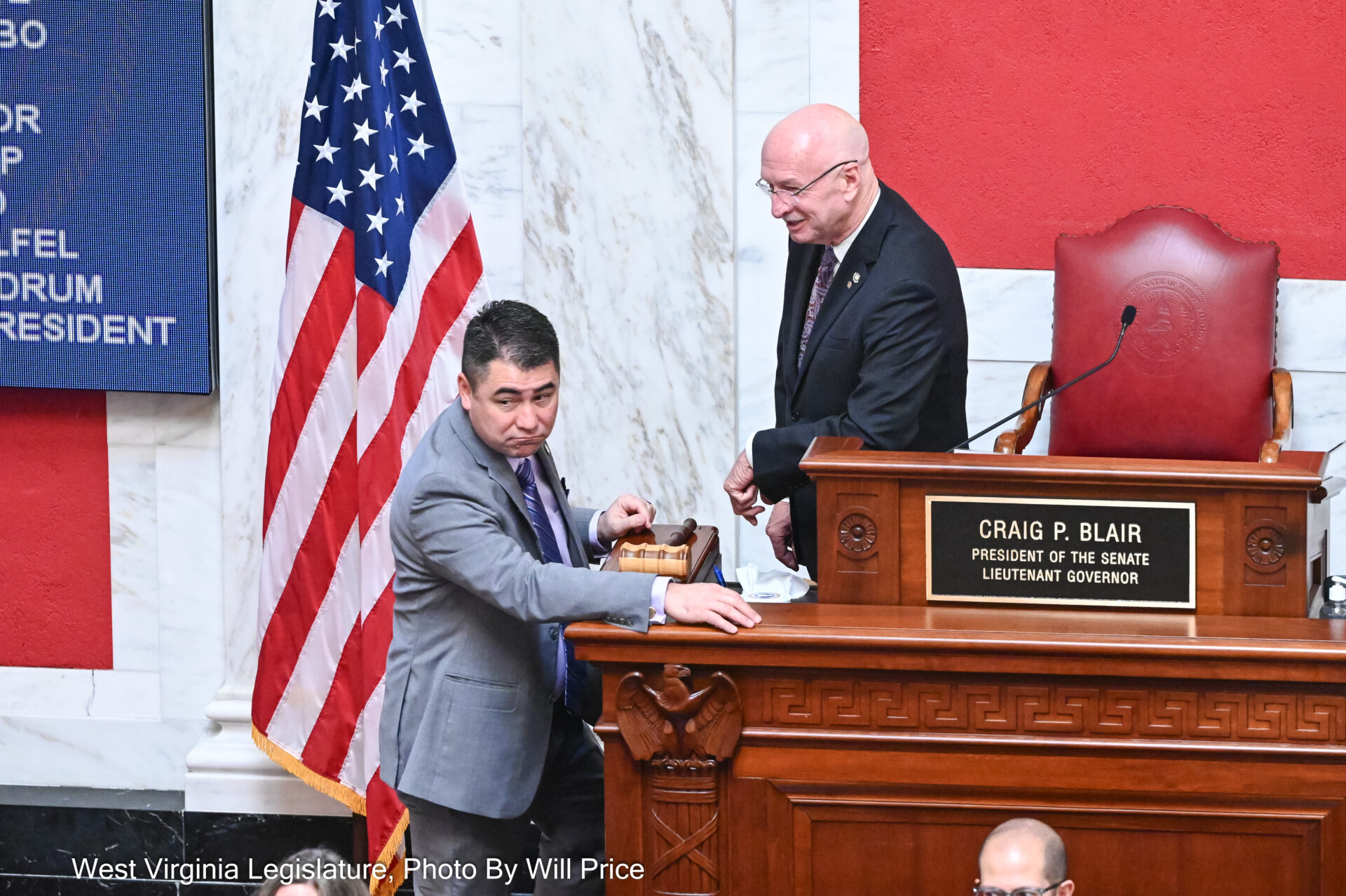A top Republican in the West Virginia Senate is calling on Gov Jim Justice to resign.
Sen. Craig Blair, R-Berkeley, took aim at Gov. Justice first in a paid-for column in a weekend edition of The Martinsburg Journal and then with other news media on Monday.
In an interview with West Virginia Public Broadcasting, Blair cited legal issues surrounding Justice and his family businesses, a lawsuit over a constitutional residency requirement and policy positions on education reform as he argued the governor isn’t committed to his work in public office.
“This has been building up for me for probably six months to a year on this and then — when the governor come into our caucus other day talking about the Student Success Act — his greatest concern was the extracurricular activities,” Blair said.
Justice visited Senate Republicans and Democrats separately earlier this month to talk about an ongoing special session on education reform. One proposal amended into a complex and controversial bill would keep schools from holding extracurricular activities on days when educators go on strike. Justice told both caucuses and reporters he opposed that element of the measure.
“This just didn’t make any sense to me at all,” Blair said as he questioned Justice’s position. “Students right now cannot participate in extracurricular activities when they miss school, but yet teachers can? And, of course, he’s a basketball coach. It dawned on me — it hit me like a ton of bricks — that this man was more interested in coaching basketball than working for the state of West Virginia.”
Justice was elected in 2016 as a Democrat but switched his affiliation to Republican at an August 2017 rally for President Donald Trump in Huntington.
In recent months, Justice’s family businesses have been the target of civil suits for failing to pay creditors. Del. Isaac Sponaugle, D-Pendelton, has filed suit against the governor for allegedly failing to meet a constitutional provision requiring West Virginia’s governor to “reside at the seat of government during their terms of office.”
“I didn’t vote for this man. He’s running around claiming he’s a Republican and soiling our brand, so to speak, by not behaving like a Republican,” Blair said. “The people of West Virginia expect better.”
If Justice were to leave office before the end of his term, Senate President Mitch Carmichael, R-Jackson, would be first in line to take over the governor’s office.
Carmichael and Blair have long been political allies, including work on the Senate’s recent controversial education reform proposals such as charter schools and education savings accounts. Justice has expressed opposition to both of those ideas championed by the GOP-led Senate.
Blair said Monday he did not consult with Carmichael before giving remarks on Justice and they aren’t intended to launch his close friend to higher office.
“That is the chain of succession — I recognize that. But anybody that knows me knows I’m outspoken. Whenever I see a wrong, I try to right them for the benefit of the people West Virginia,” Blair said. “[That’s] a victim of circumstance. I would have done it regardless.”
Justice initially responded to Blair’s comments through Mike Lukach, a representative of the governor’s 2020 reelection campaign.
“It’s no surprise that career politicians are upset that the Governor is trying to drain the Charleston swamp,” Lukach said in an emailed statement. “Governor Justice is busy every day working with President Trump to create jobs for West Virginians, fix our roads and protect the right to life and 2nd Amendment.”
Later Monday at a news conference, Justice responded directly to Blair’s comments by calling Carmichael and Blair “halfway friends.” He also alluded to the controversial Student Success Act, which has seen opposition from educators around the state.
“I think they have dug themselves a hole and I’m not going to help them dig – that’s all there is to it,” Justice said. “I think, absolutely, they have dug themselves a hole that the people of West Virginia don’t like and now they maybe want to beat on me.”
Blair said he plans to introduce a resolution in the Senate that would call for a vote of no confidence in Justice as governor.
